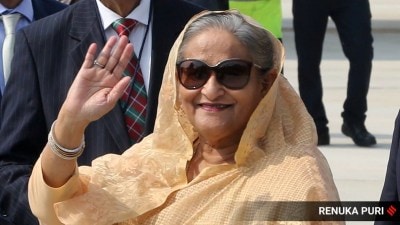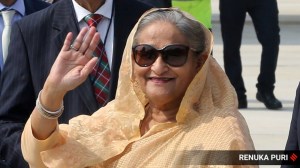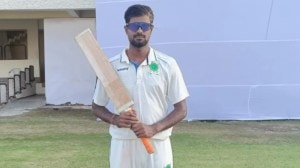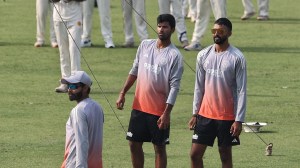Kalam won’t sign on the dotted line
Sending his second signal—the first was on Gujarat—that he’s no figurehead in Rashtrapati Bhavan, President A P J Abdul Kalam...

Sending his second signal—the first was on Gujarat—that he’s no figurehead in Rashtrapati Bhavan, President A P J Abdul Kalam returned the draft poll reforms ordinance arguing that it didn’t incorporate what the Supreme Court had recommended.
In a six-para note, a copy of which is with The Indian Express, Kalam said that the provisions of the ordinance seeking information from candidates ‘‘are not wholly in consonance with the prescriptive requirements laid down by the Supreme Court.’’
According to his note, sent on Wednesday, Kalam says that out of the three areas of information specified by the court in May—criminal antecedents, financial background and educational qualifications—the draft ordinance incorporates ‘‘substantially’’ only the points relating to criminal offences.
The President took objection to the fact that in respect of the requirement of declaration of assets and liabilities, the Ordinance proposed by the Cabinet on August 16 ‘‘stipulates such declaration to be made only by elected candidates and not by contesting candidates.’’
Besides, Kalam pointed out that ‘‘the court’s stipulation that the assets of not only the candidate but (also) those of the spouse and dependants should be declared has not been covered in the proposed Ordinance.’’ These two changes regarding the information the candidates have to furnish about their financial background appeared to be, he said, ‘‘a significant departure from the directives of the Apex Court.’’
As for the court’s directive that candidates be made to disclose their educational qualifications, the President said: ‘‘The proposed Ordinance is silent on this.’’
Though Kalam has asked the Government to reconsider the matter ‘‘in this light and advise,’’ it’s unlikely that the Government will concede in entirety.
Highly placed sources in the Government told The Indian Express that the Cabinet, which is due to take up Kalam’s letter tomorrow, will partially accept his suggestions about disclosure of assets and liabilities.
While the Government is disinclined to make candidates disclose their assets and liabilities—leaving it to only the elected ones—it is likely to accept Kalam’s suggestion partially by requiring the elected candidate to disclose financial information of even the spouse and dependent children.
The Government is however miffed at Kalam’s attempt to assess the provisions of the proposed Ordinance on the basis of the Supreme Court’s directives.
The President, it feels, has missed the point that the proposed Ordinance is meant not so much to give effect to the court judgment but to reflect the consensus among political parties as arrived at a meeting on August 2.
Sources rule out the possibility of candidates being asked to disclose their educational qualifications. In the Government’s view, that would be against the spirit of the Consitution.



- 01
- 02
- 03
- 04
- 05




























